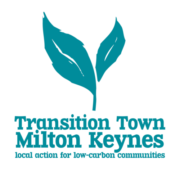Public Transport
Buses
Using buses more will, in most cases, reduce our carbon footprints.
Milton Keynes Council announced in October 2021 that it has been awarded a total of £32m for 60 new electric buses and an upgraded charging point for Milton Keynes. Travelling by electric bus will emit less CO2 equivalent than a car journey in almost all cases.
You can also argue that since the bus is going to travel anyway, if you use it, you are effectively travelling carbon footprint free.
We also need to reduce car use because of the pollution involved, so we need to prefer the bus whenever we can.
That said, anyone who has tried to get somewhere on time using buses in Milton Keynes will know that being punctual is a lottery with unannounced cancelations and other issues being frequent. Buses will, however, do fine for shopping trips that are more than two miles away (outside a reasonable walking distance).
MK Connect, Milton Keynes Council’s on-demand service, uses many electric vehicles and is a good alternative when buses are not an option.
Trains
Using electric trains emits less CO2 equivalent than a car unless the car is full. So if you need to go to Glasgow, it’s best to travel by train unless there are four of you and your car does around 36 miles per gallon. Even diesel trains are better than cars for single people journeys. We can cut our carbon footprints by only using standard class. First class emits double the CO2 equivalent of a standard journey. (These figures take into account track and train maintenance and the carbon embodied in the train itself).
Taxis
Taxis would be a great carbon reducing way to travel if they were electric. Otherwise, using a taxi only reduces your carbon footprint if you do not own a car (the embodied carbon in the car you own is part of your footprint).

